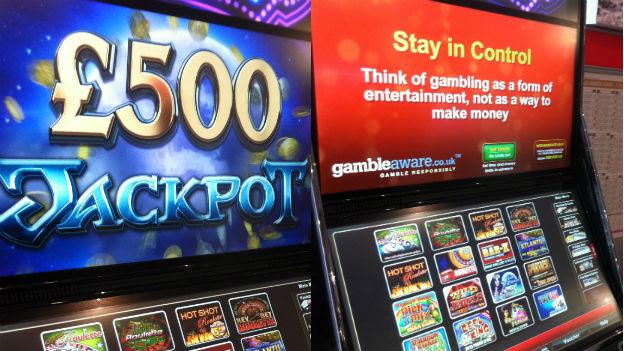Gambling addict with brain injury spent £210,000
- Published
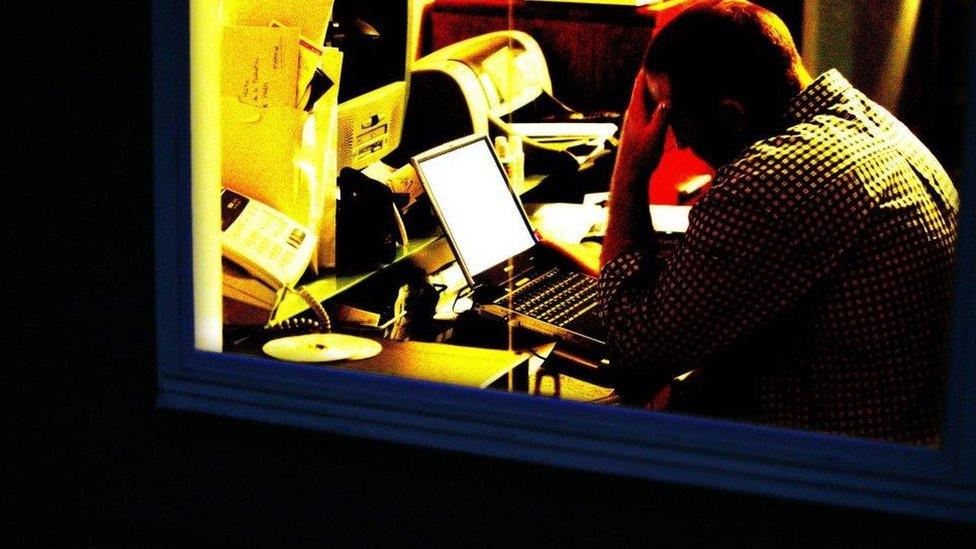
Self-exclusion schemes have been criticised
At 23, George - not his real name - had everything to look forward to.
But an unprovoked attack outside a nightclub left him in a coma with a life-changing brain injury and little hope of success in his career in the entertainment industry.
At least he had a compensation package to help him rebuild his life.
Ten years on, that money and more has gone - wasted on scores of online casinos.
"The money was there to protect me, get myself a house, get myself back on track, but unfortunately I've made a huge mistake," he told 5 Live Investigates.
"It's a compulsive decision that I make and I don't know what I'm doing.
"I've had this awful thing happen to me, I've wasted time and I've lost money that's supposed to help me and it's ruined my life.
"I'm not doing this because I enjoy it, it's an addiction. I know that I'm not going to win money, but it's an illness."
George told 5 Live Investigates he had been unable to recover much of the estimated £210,000 he spent in a four-month period last year, despite telling the casinos, after he had gambled, about his brain damage.
He developed his addiction following a visit to a casino three years ago.
Bank statements, seen by 5 Live Investigates, show he spent over £60,000 on two occasions with the same online casino.
While some companies have apologised and refunded him when he pointed out he had brain damage, others have refused to pay him back.
"I don't understand why the companies that have taken large sums of money won't give me my money back when I've joined Gamstop, got proof of a mental health condition and given them evidence of my brain injury," he said.
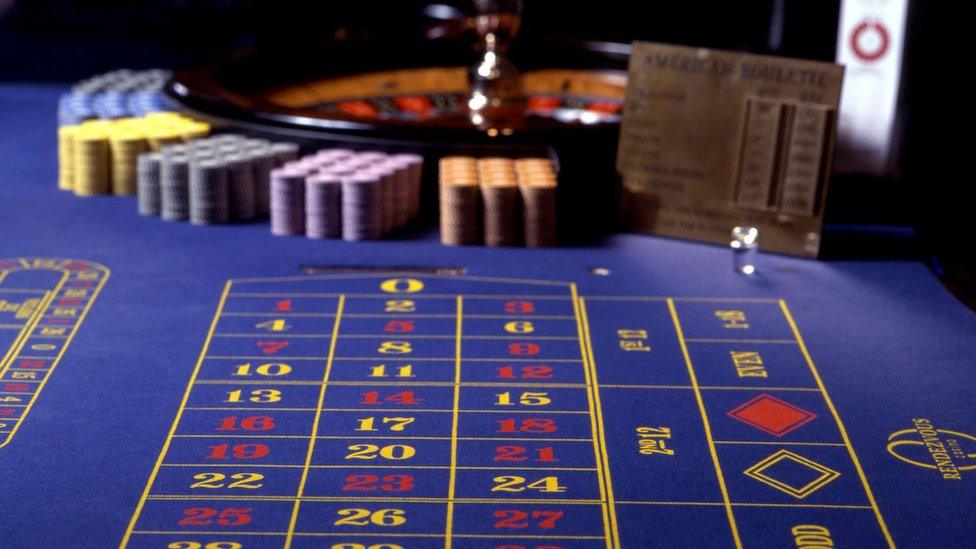
Self-exclusion schemes have been criticised
5 Live Investigates contacted the four companies with which George had spent the most money.
Three of the companies - Nektan, Bear Group and Every Matrix - wouldn't comment on George's case directly.
Nektan said George's case was still being investigated, but said compliance with regulatory measures was its top priority and that the company invested time and resources into ensuring their systems were as robust as possible, with a particular emphasis on the most vulnerable gamblers.
Bear Group said it couldn't divulge the checks it performed on players for security purposes, but said appropriate security and safety checks were undertaken.
Every Matrix said it had a dedicated Responsible Gambling and Verification team that received regular training on how to spot problem-gambling and how to interact with players it suspected of having problem-gambling issues.
Netbet didn't respond to 5 Live Investigates' request for a comment.
Both Every Matrix and Nektan said they had developed their own tools to ensure gamblers didn't bet using multiple identities.
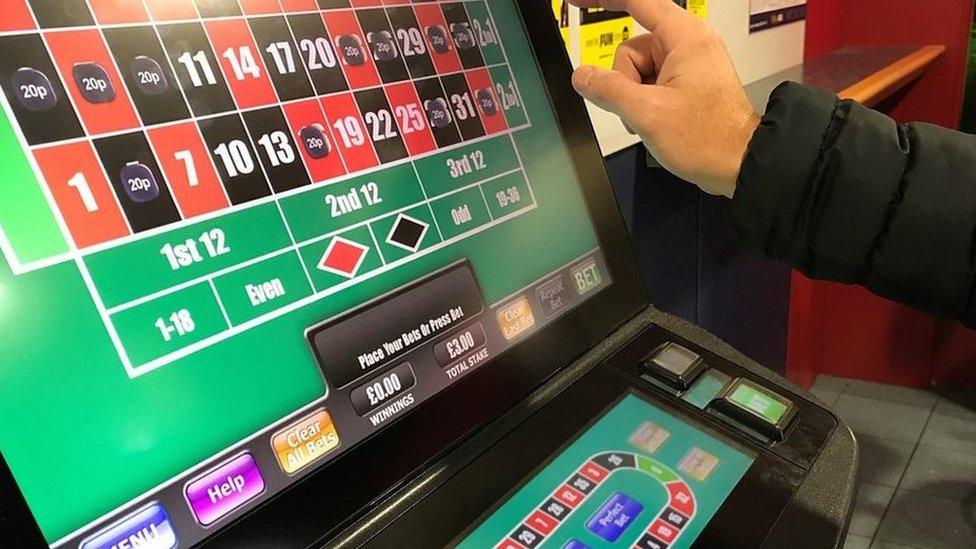
Gamstop is the nationwide self-exclusion scheme for online problem gamblers. George joined in July last year, but was able to get around the restrictions by changing his details on websites he gambled on.
Brain injury charity Headway said more needs to be done to protect people who are both vulnerable to gambling addiction and also in possession of large sums of money.
"This deeply worrying case, and many others like it, illustrates the vulnerability of brain-injury survivors to the addictive nature of gambling," said Luke Griggs of Headway.
"A brain injury can leave survivors prone to impulsive behaviour, impaired reasoning and suffering from a lack of insight into how their brain injury affects them.
"These are often compounded by social isolation and can open the door to the high-risk world of gambling.
"This is a hugely well-resourced industry that could and should be doing so much more to identify and protect vulnerable people who do not possess the skills to fully recognise the dangers or comprehend the implications of their actions."
The Gambling Commission said its rules mean operators must step in where they have concerns that a customer's behaviour while gambling is harming them - including looking at how much money is being spent.
"Where we find operators failing to protect customers from gambling-related harm we will take tough action," a spokesman said, adding that the Gambling Commission is launching a consultation with the industry on better identification of customers.
But Matt Zarb-Cousin, of the Campaign for Fairer Gambling, said the Gambling Commission needed to use its powers to act directly in cases such as George's.
"If a customer is gambling large sums of money, the companies need to determine what the source of funds is to be sure no money is being laundered or someone isn't gambling with the proceeds of crime," he said.
"If they did those checks, they would determine the customer is gambling money they can't afford so they would be failing in their duties of social responsibility.
"The fact that George is a vulnerable person and his decision-making ability is impacted by his vulnerability means the Gambling Commission should take direct action against those operators who refuse to refund him."
You can listen to 5 Live Investigates on BBC Sounds.
- Published13 January 2019
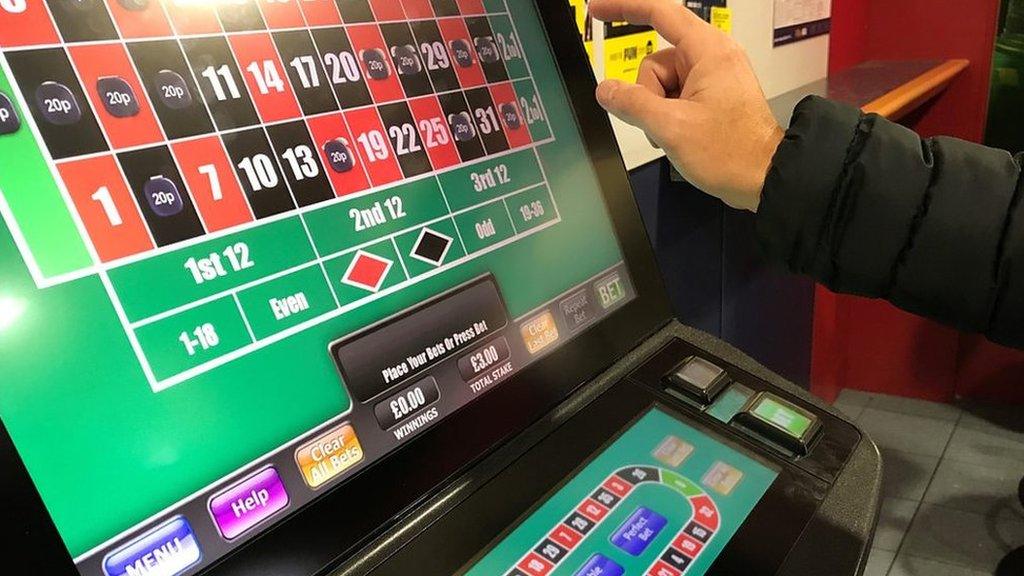
- Published31 August 2017
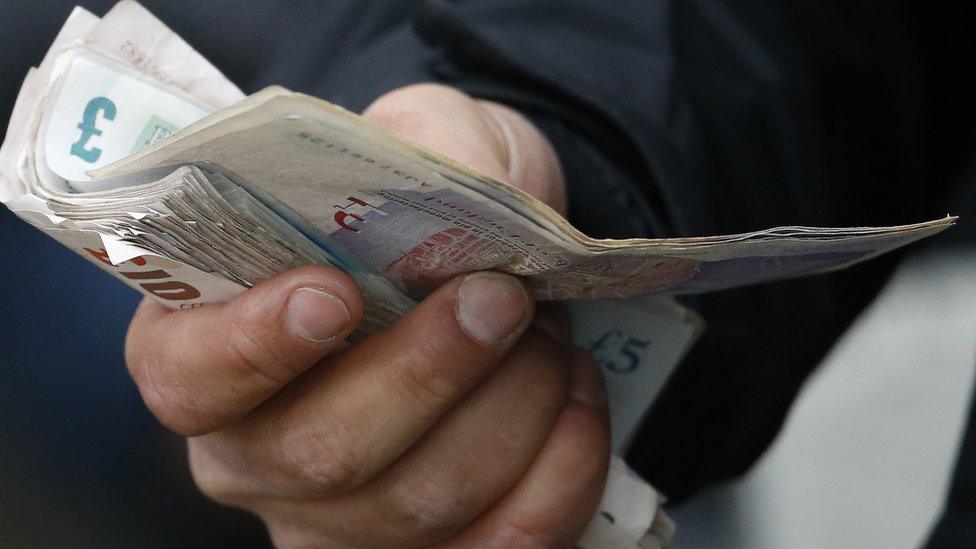
- Published13 January 2019

- Published5 October 2015
